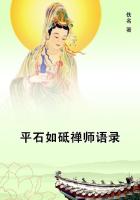My father was as much pleased at this plan as I was; and the dear family of cousins often spoke of things to be done, and sights to be shown me, during this visit. My want of wisdom in having told 'that thing' (under such ambiguous words I concealed the injudicious confidence I had made to Phillis) was the only drawback to my anticipations of pleasure.
The ways of life were too ****** at the Hope Farm for my coming to them to make the slightest disturbance. I knew my room, like a son of the house.
I knew the regular course of their days, and that I was expected to fall into it, like one of the family. Deep summer peace brooded over the place; the warm golden air was filled with the murmur of insects near at hand, the more distant sound of voices out in the fields, the clear faraway rumble of carts over the stone-paved lanes miles away. The heat was too great for the birds to be singing; only now and then one might hear the wood-pigeons in the trees beyond the Ashfield. The cattle stood knee-deep in the pond, flicking their tails about to keep off the flies. The minister stood in the hay-field, without hat or cravat, coat or waistcoat, panting and smiling.
Phillis had been leading the row of farm-servants, turning the swathes of fragrant hay with measured movement. She went to the end--to the hedge, and then, throwing down her rake, she came to me with her free sisterly welcome. 'Go, Paul!' said the minister. 'We need all hands to make use of the sunshine to-day. "Whatsoever thine hand findeth to do, do it with all thy might." It will be a healthy change of work for thee, lad; and I find best rest in change of work.' So off I went, a willing labourer, following Phillis's lead; it was the primitive distinction of rank; the boy who frightened the sparrows off the fruit was the last in our rear.
We did not leave off till the red sun was gone down behind the fir-trees bordering the common. Then we went home to supper--prayers--to bed; some bird singing far into the night, as I heard it through my open window, and the poultry beginning their clatter and cackle in the earliest morning.
I had carried what luggage I immediately needed with me from my lodgings. and the rest was to be sent by the carrier. He brought it to the farm betimes that morning, and along with it he brought a letter or two that had arrived since I had left. I was talking to cousin Holman--about my mother's ways of ****** bread, I remember; cousin Holman was questioning me, and had got me far beyond my depth--in the house-place, when the letters were brought in by one of the men, and I had to pay the carrier for his trouble before I could look at them. A bill--a Canadian letter! What instinct made me so thankful that I was alone with my dear unobservant cousin? What made me hurry them away into my coat-pocket? I do not know. I felt strange and sick, and made irrelevant answers, I am afraid. Then I went to my room, ostensibly to carry up my boxes. I sate on the side of my bed and opened my letter from Holdsworth. It seemed to me as if I had read its contents before, and knew exactly what he had got to say. I knew he was going to be married to Lucille Ventadour; nay, that he was married; for this was the 5th of July, and he wrote word that his marriage was fixed to take place on the 29th of June. I knew all the reasons he gave, all the raptures he went into. I held the letter loosely in my hands, and looked into vacancy, yet I saw the chaffinch's nest on the lichen-covered trunk of an old apple-tree opposite my window, and saw the mother-bird come fluttering in to feed her brood,--and yet I did not see it, although it seemed to me afterwards as if I could have drawn every fibre, every feather. I was stirred up to action by the merry sound of voices and the clamp of rustic feet coming home for the mid-day meal. I knew I must go down to dinner; I knew, too, I must tell Phillis; for in his happy egotism, his new-fangled foppery, Holdsworth had put in a P.S., saying that he should send wedding-cards to me and some other Hornby and Eltham acquaintances, and 'to his kind friends at Hope Farm'. Phillis had faded away to one among several 'kind friends'. I don't know how I got through dinner that day. I remember forcing myself to eat, and talking hard; but I also recollect the wondering look in the minister's eyes. He was not one to think evil without cause; but many a one would have taken me for drunk. As soon as I decently could I left the table, saying I would go out for a walk. At first I must have tried to stun reflection by rapid walking, for I had lost myself on the high moorlands far beyond the familiar gorse-covered common, before I was obliged for very weariness to slacken my pace. I kept wishing--oh! how fervently wishing I had never committed that blunder; that the one little half-hour's indiscretion could be blotted out. Alternating with this was anger against Holdsworth; unjust enough, I dare say. I suppose I stayed in that solitary place for a good hour or more, and then I turned homewards, resolving to get over the telling Phillis at the first opportunity, but shrinking from the fulfilment of my resolution so much that when I came into the house and saw Phillis (doors and windows open wide in the sultry weather) alone in the kitchen, I became quite sick with apprehension. She was standing by the dresser, cutting up a great household loaf into hunches of bread for the hungry labourers who might come in any minute, for the heavy thunder-clouds were overspreading the sky. She looked round as she heard my step.
'You should have been in the field, helping with the hay,' said she, in her calm, pleasant voice. I had heard her as I came near the house softly chanting some hymn-tune, and the peacefulness of that seemed to be brooding over her now.
'Perhaps I should. It looks as if it was going to rain.
'Yes; there is thunder about. Mother has had to go to bed with one of her bad headaches. Now you are come in--'Phillis,' said I, rushing at my subject and interrupting her, 'I went a long walk to think over a letter I had this morning--a letter from Canada.















